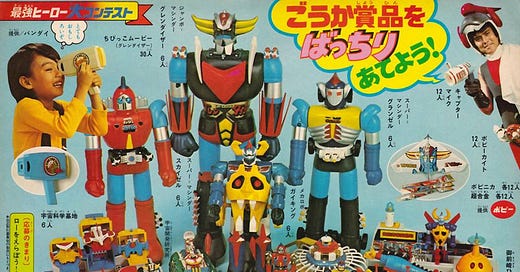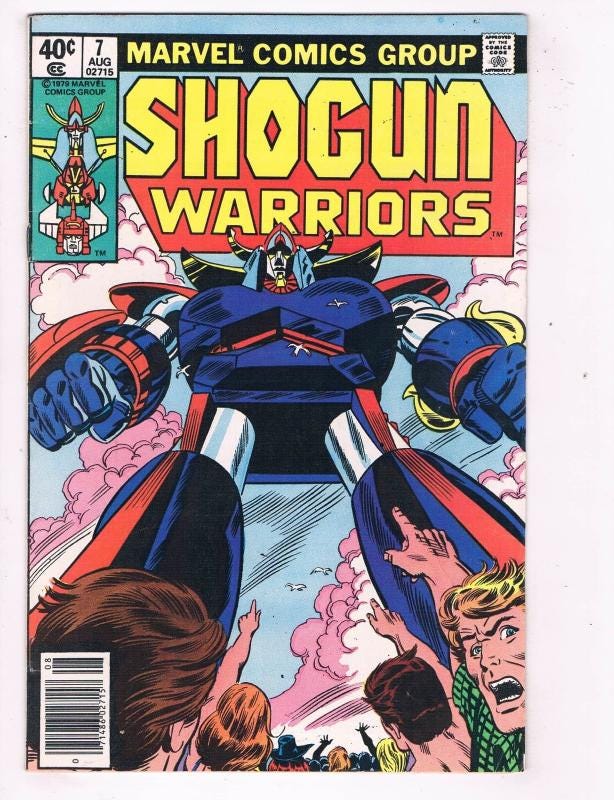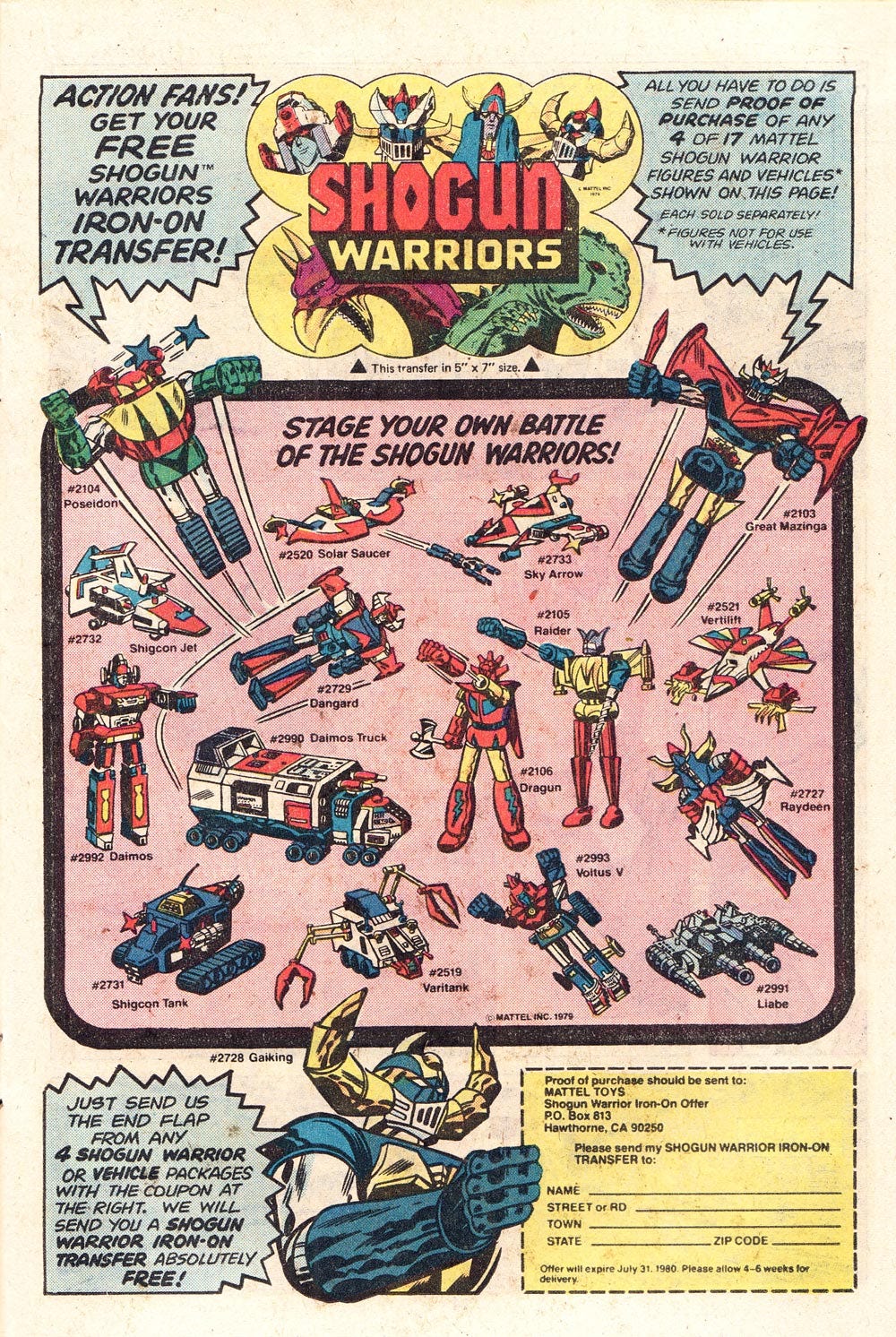How a 3-Foot Toy Convinced a Legend to Write the 'Shogun Warriors' Comic
Revisiting some favorite interviews.
I’ve been lucky enough to talk to many, many comic book writers and artists over the years. After a nearly 50-year-old (!) Shogun Warriors toy commercial caught fire on social media last week, I was reminded of a couple of my favorite interviews.
In 2013, I received an assignment from the magazine Back Issue! to write a retrospective on Marvel’s licensed Shogun Warriors comic book series. It only ran for 20 issues, but it garnered a cult following—with admirers like beloved comics scribe Kurt Busiek, who had a fan letter printed in Shogun Warriors #6.
I was lucky enough to talk to the comic's primary creatives, writer Doug Moench and artist Herb Trimpe, for the piece. Both of these legends were incredibly generous with their time, and they had fond memories of working with each other on the book. Sadly, Trimpe passed away just one year after the issue hit stands, but I’m thankful for that time we got to spend together. Since the interview’s nowhere to be found on the Internet (which I kind of love, really), I wanted to share a few of my favorite quotes from the piece:
Moench, on getting an assignment that was unusual for a more adult-oriented writer: “I wasn’t aware of (the Shogun Warriors’) names at time. I think actually Stan (Lee) asked me. He said, ‘Hey, how would you like to do Shogun Warriors?’ I was taken aback a little bit. A guy had come from Japan with a bunch of toys -- I guess they were trying to seal the deal with Marvel. I thought, ‘Wow, I could be a real star with my kid.’ One of them was a 3-foot tall Raydeen, a really tall thing, and I got to take them home! I was right; my kid was thrilled. All of his friends couldn’t believe it.”
“I think they even said, ‘Look, I know you’re not known for this kinda stuff, but maybe that’s what we need--a more adult take.’ I said, ‘I want to do the opposite. A real free-wheeling, fun thing specifically aimed at much younger readers, but I’ll try to do it in a way older readers will enjoy it.’ This will help me keep up the work flow. As long as there’s variety. It won’t feel like there’s just more work. It was like a breath of fresh air to me.”
Trimpe, on his tendency to do assignments exactly like this: “As someone once pointed out -- I had never realized this after 30 years working at Marvel -- I did a lot of the licensed stuff. In fact, I think I did almost solely the licensed stuff on a regular basis. I think [I started drawing ‘Shogun Warriors’] because nobody else wanted to do that. It wasn't a mainline superhero. Which suited me, because superheroes are boring.”
Moench, on working with Trimpe: “I always enjoyed working with Herb Trimpe. I love his storytelling. You know, it’s a different experience with every artist. Some of them it’s hard to write for because the art isn’t exactly what you thought of or it isn’t a match for your writing style. With Herb, it already flows from image to image. So you don’t have to put in exposition or dialogue or caption so people can make sense with what they’re trying to read, saying, ‘Hey, I know the art doesn’t show this, but . . .’ I never had to worry about that with Trimpe.”
Trimpe, on a classic playground debate: “If I had to put Transformers and Shogun Warriors aside, and someone asks which one is more appealing, I would have said Shogun Warriors, because Transformers don't make any sense whatsoever. It's kid stuff. Being on ‘Transformers’ was a nightmare. In ‘Shogun,’ people operate the thing. It's not aliens from another planet. They transformed, but they transformed into a very logical shape using the parts at hand. I can't really talk about Shogun Warriors without thinking of Transformers. They're opposite poles of a magnet, side by side and pushing away at each other.”
Trimpe, on how licensed work has changed: “We had a lot of freedom then. Nobody stuck their nose in. No one said, ‘Look, Doug, Look, Herb: This has to be changed.’ We never had to deal with that. We just went ahead with it.” Even on G.I. Joe, Larry [Hama] and I never heard from Hasbro. I never had a problem with the companies on that stuff. Then, there were no summer blockbuster movies. Now, there’s giant money riding on all of this stuff. Suddenly, comics have gotten ‘important.’ Everybody wants a hand in the pie.”
Moench, on a strange commute with a 3-foot-tall toy made worth it: “I just remember going home from Manhattan, walking all the way to the Port Authority with that thing, and wrestling it onto the bus. But it was all worth it when my kid saw it. A perfect day, you know?”








